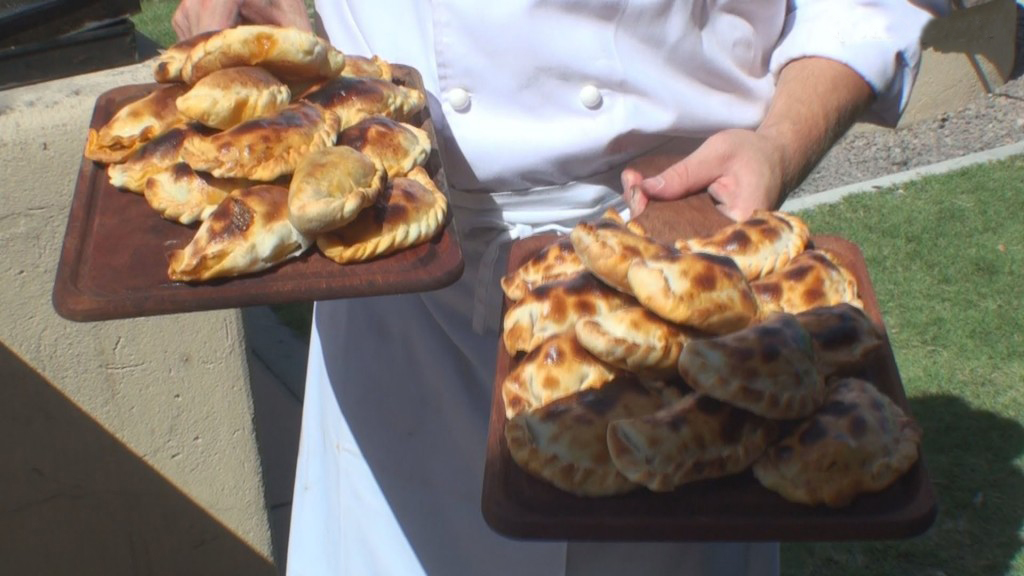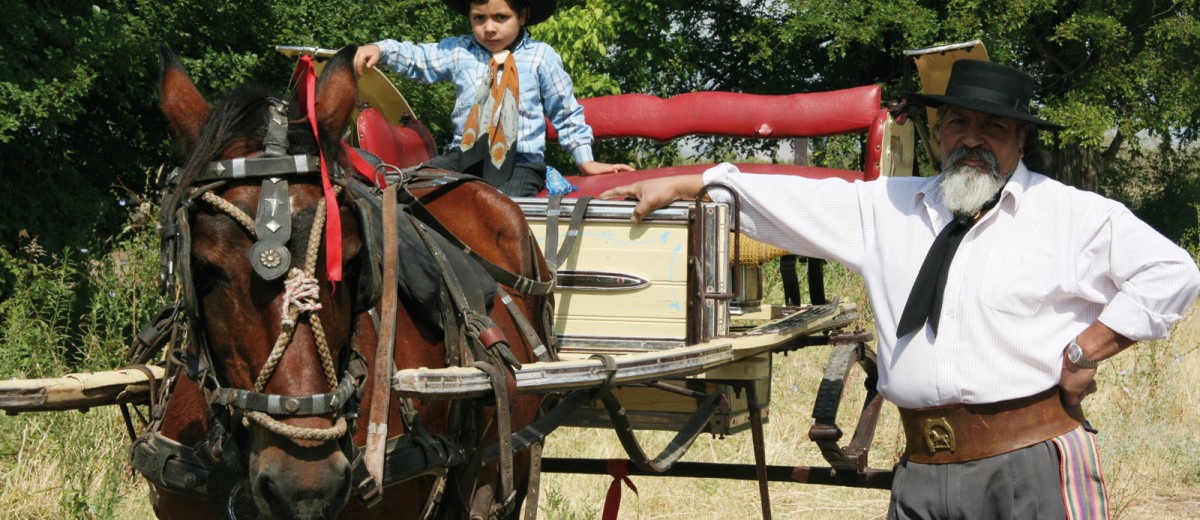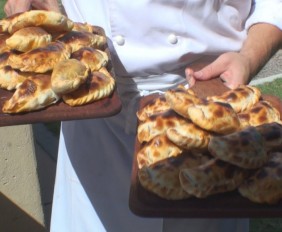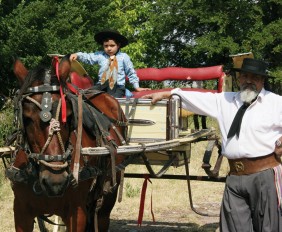Rural tourism is an innovative activity that brings together many rich aspects: countryside, fauna, flora, architecture, regional foods, folklore and traditions that are zealously preserved by our town, it creates the identity of a mendoza that is projected to the world.
Its geography features such a diversity of landscapes-mountains, deserts, ponds, caves, volcanoes, rivers, and valleys-that allows for the practice of adventure sports and ecological tourism.
Visitor may choose to travel along the winding Andean roads whilst they do some bird watching, see the native flora and fauna, take part in photographic safaris, go trekking, fly-fishing o just listen to the sounds of Andean nature.
Ecological tourism is an alternative that allows visitors to approach nature and its inhabitants by taking part in various tours and doing agricultural chores: seeding, harvesting, pruning, manufacturing hand-made products or taming animals, among other tasks. After a hard day´s work visitors will treat themselves to home-made dishes, cheese, marmalade, cold cuts, and traditionally made wine.
These options include staying at rural villas or in mountain estancias offering a once-in-a-lifetime experience as visitors blend in with the local culture and forget about routine.
Visits to these places include carriage rides, driving a tractor, and seeing cows being milked, breaking-in, and shoeing. This could be the departure point to various industrial premises such as nurseries, olive oil factories, wineries, beekeeping facilities, cold stores, and packing companies. Visitors may next visit zoos featuring exotic animals or go horse-back riding for the day or venture into crossing the Andes.
Unique cultural expressions, hand crafts, music, dance, local festivals, native communities, and flora and fauna reserves make these tours even more appealing. Ecological tourism means going back to nature and rediscovering wild life.
Spending free time in Mendoza has special qualities, rural locations are an oasis, where production is possible due to the water that comes from melted snow and mountain rivers, and from man’s hard work. This magic combination, with pre-Columbian origins, gives us wide open desert spaces, that impose a mysterious beauty in the heights of the Andes and in the desert sands that extend out towards the east of the province.
Tourists can see the contrasts of the province’s natural countryside and its productive zones, (that only make up 4% of the area’s cultivated land), and it is the country’s main wine producing territory.
This is made possible by the excellent management of the irrigation system in the desert areas.
One can communicate with nature and its inhabitants in many ways, participating in farming, seeding, harvesting, pruning, making artisan products, animal taming, amongst other chores or tasting local home-cooked foods, cheeses, sweets, local wines. The options include staying in rural houses or mountain farms, the unique experience of surrounding yourself in a village culture and getting away from the day-to-day. It is possible to go back in time and ride in old carriages, drive tractors, cross the Andes, see cow milking, horse taming, branding or visit industrial establishments like tree nurseries, wineries, olive oil factories, apicultural businesses, freezers and packers, educational farms, animal nurseries and exotic animal zoos.
Rural tourism is being developed all over the province, where more than a hundred businesses offer various activities. Extraordinary cultural events, art, music, dance, regional parties, aboriginal communities, plant and animal reserves, all make rural tours interesting.
Rural tourism is a return to the earth, to a greener life, an alternative that lets you find the riches of the country. Reservations and visits should be scheduled ahead of time.
Esta entrada también está disponible en: Spanish Portuguese (Brazil)








¿Qué te pareció la publicación?